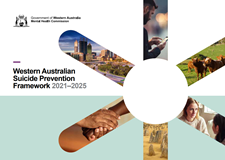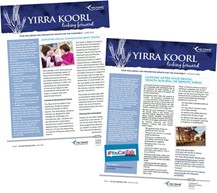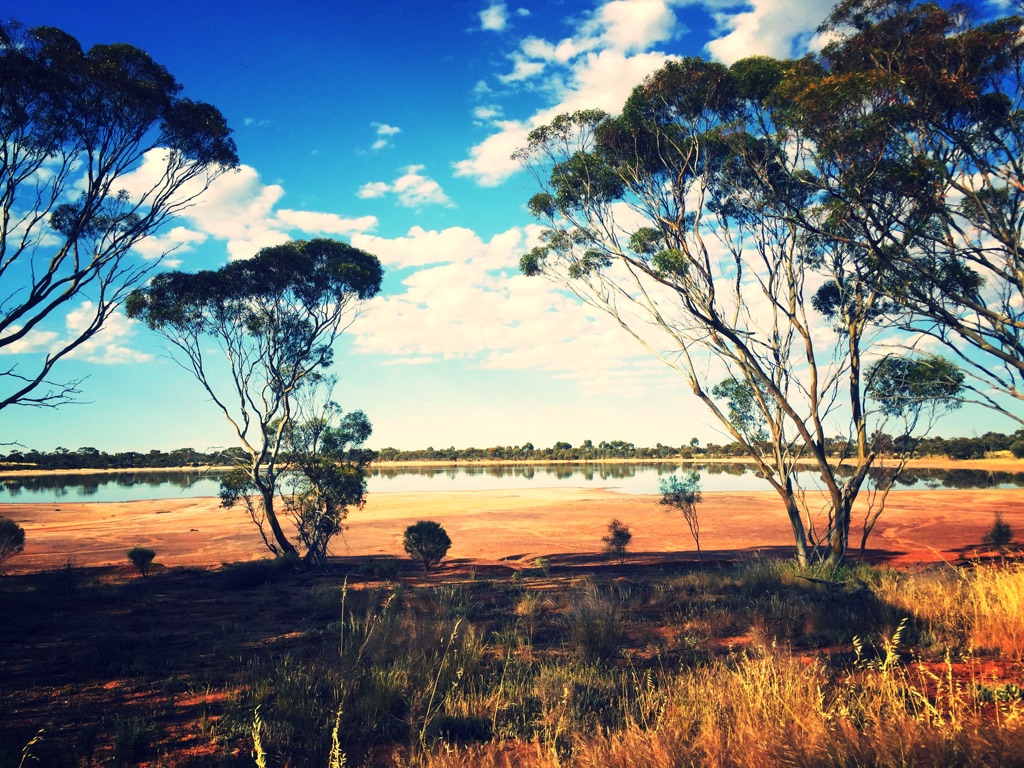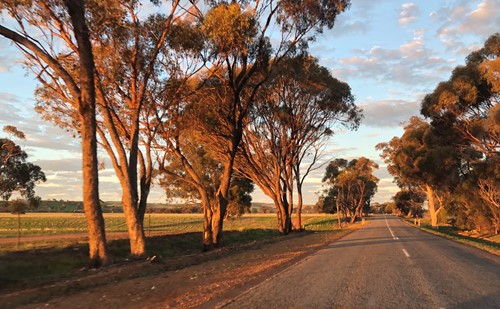Regions and Suicide Prevention Coordinators and Training/Activities
There are 10 Suicide Prevention Coordinators across Western Australia with different service providers responsible for particular areas of the state.
Find out who to contact in your region and what training, events and activities are going on!
For any Suicide Prevention queries in the Goldfields, please contact:
Justin Edom, Suicide Prevention Coordinator Goldfields North & South.
Email: justin.edom@hopecs.org.au
Phone:046 477 690
The Great Southern Suicide Prevention Coordinator is located at Palmerston, Albany and works across the Great Southern region. The coordinator does not provide a direct service, but works in collaboration with service providers in the Great Southern to build the community's capacity to prevent and respond to suicide.
For any suicide prevention queries in the Great Southern, please contact Suicide Prevention Coordinator: Kaitlin Johnson
Email: kjohnson@palmerston.org.au
Phone: (08) 9892 2100
Useful numbers:
StandBy Support Line: 1300 727 247
Lifeline: 13 11 14
13Yarn (crisis support line for Aboriginal and Torres Strait Islander peoples): 13 92 76
Suicide call back service: 1300 659 467
Crisis Care: 1800 199 008
Beyond Blue: 1300 224 636
RuralLink (after hours): 1800 552 002
The Kimberley Suicide Prevention Coordinator is located within the Kimberley Mental Health and Drug Service (KMHDS), which is a Kimberley wide service provided through the WA Health Department. The Coordinator is based in Broome and provides services across the Kimberley.
The Kimberley Suicide Prevention program aims to increase collaboration amongst stakeholders, raise awareness through support and/or delivery of events, media articles and training as well as assistance with postvention initiatives.
For further information, please contact: Sue Luketina at sue.luketina@health.wa.gov.au
Upcoming training, news and events:
Please contact the Suicide Prevention Coordinator for more details.
Please contact the Suicide Prevention Coordinator if you have any queries or requests in relation to upcoming training or support with local activities.
Contact: spc.metro@neaminational.org.au
The program does not provide a direct service but works within the community and with service providers to build capacity to prevent and respond to suicide.
See more about the Perth Metro Suicide Prevention Coordinators.
Resources for Community
Community Group / Club Suicide and Mental Health Awareness Guide.
A Guide for Parents - supporting your child's mental health.
Safety and Public Memorials following Suicide.
Support for Suicide Bereavement.
Supports After Suicide or Sudden Loss.
Helplines and Support Services.
Newsletters, highlights and updates
View the latest edition of the Perth Metro Suicide Prevention Coordinator newsletter.
Useful Numbers
Emergency
000
Lifeline
13 11 14
Suicide Call Back Service
1300 659 467
Crisis Care
1800 199 008
Beyond Blue
1300 224 636
Website
Neami National: Perth Metro Suicide Prevention Coordination. Click here to visit the website.
Based in Geraldton
Contact: Georgina Gillman
Phone: 9956 1963
Email: Georgina.Gillman@health.wa.gov.au
Contact: Savannah Corbett
Email: savannah.corbett@health.wa.gov.au
Jacquie and Hannah are the South West Suicide Prevention Coordinators based in Bunbury who act as a central point of communication to assist community and service providers by supporting, developing and promoting initiatives that improve wellbeing, prevent suicide, and support the needs of people impacted, affected or bereaved by suicide.
Whilst the program does not provide a clinical service, we work with the community and with service providers to build capacity to prevent and respond to suicide and suicide bereavement through training and service coordination, community engagement and support, resource and information sharing, and service linkage across the South West region.
For information on upcoming training, news, events or to discuss how we might support your community or organisation, please contact:
SuicidePrevention.Southwest@sjog.org.au
The Suicide Prevention Coordinator program is funded by the Mental Health Commission and works with the Commission to deliver on the priorities of the WA Suicide Prevention Framework 2021-2025

Useful Numbers
Emergency: 000
Rural Link (after hours): 1800 552 002
Lifeline: 13 11 14
Suicide Call Back Service: 1300 659 467
Crisis Care: 1800 199 008
Beyond Blue: 1300 224 636

The Wheatbelt Suicide Prevention Coordinator is located within Holyoake Wheatbelt Community Alcohol and Drug Service (WCADS) and has offices in Narrogin and Northam with outreach capacity to the 200+ communities located within the Wheatbelt.
Contact: Jo Drayton
Email: JDrayton@holyoake.org.au

The Wheatbelt Suicide Prevention Project aims to:
- increase mental health and suicide prevention literacy,
- promote help seeking behaviours and improve access to primary care and supports,
- provide an integrated framework for mental health and wellbeing and suicide prevention by providing evidence based and informed initiatives and activities; and
- provide the foundation for sustainable community wellbeing & safety initiatives that strongly align to Local Government Authorities Public Health Plans
“Holyoake welcomes this new initiative from WA Primary Health Alliance to build community capacity to support our vulnerable cohorts across the Wheatbelt region. We look forward to the introduction of this much-needed project.” said Ms Lorraine Keane, Chief Executive Officer of Holyoake.
The Wheatbelt Suicide Prevention Project will encompass an area of approximately 188,000 square kilometres, including 43 local government authorities. It will ensure that individuals and communities have access to information, whilst also empowering them to access the support they need in a timely manner.
The project will focus on activities aligned across four key pillars of service delivery:
- Primary Care Pillar: Suicide prevention training & resources will be provided to GPs, practice nurses, practice managers and pharmacies in order to encourage help-seeking behaviour in the community.
- Education & Training Pillar: FREE mental health literacy and suicide prevention training will be provided to professionals, paraprofessionals, frontline workers, community members and volunteers to increase confidence in being able to identify risk and how to access or refer into support.
- Grant/Funding Pillar: Grants will be available to Local Government Authorities, Organisations, Community Wellbeing Plan committees, Incorporated bodies, and community/service groups to undertake place-based grass roots suicide prevention activities and training.
- Community Champions Pillar: Community Champions will be identified throughout the Wheatbelt region. Community Champions will have access to FREE training, education and will be provided with resources to build capacity and embed suicide prevention activities at a community level. Community Champions will be supported and virtually linked to build a ‘Wheatbelt Community of Practice’.
The Suicide Prevention Project will be managed by Jo Drayton, Holyoake’s Wheatbelt Suicide Prevention Coordinator. “This timely injection of funding into the Wheatbelt will assist and empower individuals and communities to deliver solution-focussed activities to reduce risk and improve safety. It will also assist in upskilling our workforce to be better equipped to support individuals in distress or those living with suicidal ideations.” said Ms Drayton.
“Empowering individuals and communities is at the heart of this activity. The establishment of community-led initiatives will encourage tailored, sustainable solutions to meet the diverse needs of our Wheatbelt communities,” said Melissa Spark, WA Primary Health Alliance Regional Manager – Wheatbelt.
This project will be governed by a Wheatbelt Reference Committee with representation from Holyoake WCADS, the WA Country Health Service (WACHS), and WA Primary Health Alliance.
The Wheatbelt Suicide Prevention Project portal will serve as a shared regional platform for suicide prevention information, resources
and opportunities for community members, stakeholders, service providers and Local Government Authorities and can be accessed via: https://phexchange.wapha.org.au/wheatbelt-suicide-prevention-project
If you have any questions or would like any further information about this Project, please don’t hesitate to contact Jo Drayton (JDrayton@holyoake.org.au) or Jordyn Drayton (jordyn.drayton@holyoake.org.au)
Upcoming Training, News and Events
News
Yirra Koorl (Wheatbelt Prevention & Wellbeing Newsletter)
Yirra Koorl – the Wheatbelt Prevention and Wellbeing Newsletter is produced quarterly and provides information on suicide prevention and alcohol and other drug news, articles and research; newly realised policies and strategic documents, upcoming training and events, funding rounds and Mental Health Commission campaigns.

Training
Mental Health Literacy & Suicide Prevention Training
We currently deliver an array of mental health literacy and suicide prevention training in the Wheatbelt. Please peruse the training currently offered from the list below (please note that upon request we can look at the possibility of delivering training not currently listed)
Gatekeeper Suicide Prevention Training (18+)
Gatekeeper Suicide Prevention is a two-day workshop designed for professionals and para-professionals whose roles bring them into regular contact with people at risk of suicide. This workshop aims to help participants:
- Gain an understanding of the problem of suicide
- Identify suicide risk
- Provide a framework for risk assessment and intervention
- Develop appropriate intervention skills
- Understand the limits to confidentiality
- Understand the importance of consultation
- Gain an understanding of self-harming behaviour
- Gain an understanding of the link between mental disorders and suicidal behaviours
- Understand the importance of postvention
ASIST (Applied Suicide Intervention Skills Training) (16+)
ASIST is a two day workshop designed for community members and volunteers. This workshop aims to help participants:
- Understand the ways personal and societal attitudes affect views on suicide and interventions
- Provide guidance and suicide first-aid to a person at risk in ways that meet their individual safety needs
- Identify the key elements of an effective suicide safety plan and the actions required to implement it
- Appreciate the value of improving and integrating suicide prevention resources in the community at large
- Recognize other important aspects of suicide prevention including life-promotion and self-care
safeTALK (15+)
safeTALK is a half day training in suicide alertness for community members and volunteers. This workshop aims to help participants:
- Notice and respond to situations where suicide thoughts may be present,
- Recognize that invitations for help are often overlooked,
- Move beyond the common tendency to miss, dismiss, and avoid suicide,
- Apply the TALK steps: Tell, Ask, Listen, Keep Safe, and
- Know community resources and how to connect someone with thoughts of suicide to them for further suicide-safer help.
Rural Minds (15+)
The half-day Rural Minds workshop combines practical, culturally-relevant information around risk factors, signs and symptoms, prevention tips/techniques and where and how to get assistance.

This workshops covers the following topics:
- Stigma

- Risks to mental health
- Anxiety and Depression
- Destructive Thinking
- Acute Stress and PTSD
- Dementia
- Suicide
- Alcohol, drugs and mental health
- Relationships
- Financial Stress and Succession
- Strategies to build and maintain mental health
- Mental health supports
Mental Health First Aid Courses (18+)
Mental Health First Aid Course (Standard) - The 14-hour (2 day) Mental Health First Aid course teaches participants how to provide initial support to adults who are developing a mental illness or experiencing a mental health crisis.
Youth Mental Health First Aid Course - The 14 hour (2 day) Youth Mental Health First Aid Course teaches participants how to provide initial support to adolescents (those aged between 12 and 18 years), who are developing a mental illness or experiencing a mental health crisis.
Aboriginal Mental Health First Aid Course - The 14 hour (2 day) Aboriginal Mental Health First Aid Course teaches participants how to assist an Aboriginal or Torres Strait Islander adult who is developing a mental health problem or in a mental health crisis.
Older Persons MHFA Course - This 14 hour course teaches adults how to provide mental health first aid to the older person (65+). This course, in addition to covering Depression, Anxiety, Panic attacks and Psychosis, also covers Confusion, Dementia, Delirium, unsafe behaviours due to confusion - wandering, unsafe to drive and unsafe in current place of residence and challenging behaviours due to confusion.
Developing mental health problems covered are:
- Depression
- Anxiety problems
- Psychosis
- Substance use problems
- Eating Disorders (Youth & ATSI Course only)
Mental health crisis situations covered are:
- Suicidal thoughts and behaviours
- Non-suicidal self-injury (sometimes called deliberate self-harm)
- Panic attacks
- Traumatic events
- Severe effects of drug or alcohol use
- Severe psychotic states
- Aggressive behaviours
- Aboriginal and Torres Strait Islander social and emotional wellbeing (ATSI Course only)

Deadly Thinking (15+)
Deadly Thinking is a social, emotional well-being and suicide prevention program specifically designed for Indigenous communities, confronting core social and mental well-being issues in a culturally appropriate, accessible and compelling way. The social and emotional well-being and suicide prevention workshop is designed by Indigenous people for Indigenous people to be delivered to Indigenous communities.
Topics covered include:
- yarning,
- risks to mental health,
- staying strong,
- handling worries,
- symptoms of anxiety and depression,
- drug and alcohol misuse,
- suicide risk and
- Pathways to help
- DV Alert (18+) https://www.dvalert.org.au/
- DV Aware (18+) https://www.dvalert.org.au/education-and-training/awareness-sessions/1-day-dv-aware
- Challenges and Choices (School Drug Education & Road Aware) https://www.sdera.wa.edu.au/programs/challenges-and-choices-resources/
Staying Solid with Safe Yarning (15+)
Culturally safe suicide prevention yarning workshop. This workshop enables participants to:
- More confidence to have a SAFE Yarn
- Debunking some of the myths surrounding suicide
- Learning about the warning signs of suicide – when should you be worried and when to get help
- Learning how to talk to people, who may be suicidal, about their feelings and their worries
- Learning what other help is available for you to contact
For further information and to find out associated costs, please contact the Wheatbelt Suicide Prevention Coordinator JDrayton@holyoake.org.au
Wheatbelt Community Wellbeing Plans / Communication and Training Plans
Community Wellbeing Plans are place based plans that address alcohol and other drug misuse, mental health & wellbeing and suicide prevention. The Plans are developed in collaboration with local key stakeholders and the community (through Community Perception Survey’s) culminating in a strategic 2 year plan focusing on 2 to 3 key priority areas with subsequent short term outcomes and initiatives to support them.
Currently in the Wheatbelt we have 6 endorsed Community Plans in the following Shires (LGA’s) – links provided to those CWP that are public:
Pingelly Community Wellbeing Plan
Long-term Outcome: To reduce the normalisation of alcohol and other drug use; and reduce the incidence of suicides and suicide attempts in Pingelly
Priority Areas / Short Term Outcomes:
- Responsible provision of alcohol in sporting club
- Disengaged youth resulting in antisocial behaviour
- Excessive alcohol and other drug use resulting in violence and child neglect
Narembeen Community Wellbeing Plan
Long-term Outcome: To reduce risks and increase safety and wellbeing for all individuals within the Shire of Narembeen
Priority Areas / Short Term Outcomes:
- To reduce the number of alcohol related Family and Domestic Violence (FDV) recorded incidences.
- Provision of education and increased awareness of alcohol related harms, primarily the impact on children, families and the broader community.
- Increased awareness of mental health and wellbeing through the provision of education and training to professionals and the broader community.
- Increased awareness and knowledge of support services (placed based, outreach, phone and online), how to access and referral pathways.
Long-term Outcome: To reduce the harms associated with alcohol and other drug misuse and anti-social behaviour for young people; improving their mental health and wellbeing through the enhancement of youth connections with education, support services and youth activities
Priority Areas / Short Term Outcomes:
- Services/Agencies in the Shire of Northam are aware of the barriers and are working collaboratively to improve engagement with young people.
- Community is more aware of the impact and harms caused by alcohol and other drug use
- Young people are more engaged with education, youth activities and appropriate services for both AOD and Mental Health
- Reduce risks for young people through and the provision of education and training, for youth, professionals and the broader community
Dalwallinu Community Wellbeing Plan
Long-term Outcome: Building a resilient and connected community, reducing risk taking behaviours and improving the wellbeing of within the Shire of Dalwallinu.
Priority Areas / Short Term Outcomes:
- Increased awareness of harms associated with alcohol and other drug use, and the impact of role modelling with young people
- Community is more aware of safer drinking practices
- Increased awareness of importance of early intervention and help seeking behaviours and knowledge of support services and referral pathways
- Community have an increased awareness, understanding and knowledge of signs and symptoms of situational and emotional distress
Moora Community Wellbeing Plan
Long-term Outcome: Create a safe, healthy and engaged community by further building resilience and reducing harm, through enhanced inter-agency collaborations.
Priority Areas / Short Term Outcomes:
- Community and local services have an increased awareness of support available, location and referral pathway
- Community have increased knowledge of what is a safe and secure home environment; and have the subsequent tools/strategies to achieve this.
- Improved school attendance and enhanced engagement from school-aged young people
- Improved relationships between young people and local service providers
Southern Cross Communication and Training Plan
Long-term Outcome: Seeks to address the harms associated with AOD use, build resilience and improve wellbeing to reduce the incidence of risky behaviours within the community
Priority Areas / Short Term Outcomes:
- Community is more aware and knowledgeable of the harms associated with illicit drug use
- First responders are skilled in identifying and responding to Methamphetamine related issues
- Increasing understanding of imminent risk and how best to intervene through community awareness approaches
- Increase the number of sporting clubs, community groups and first responders which promote mental health and wellbeing
Postvention (support for those bereaved by suicide)
The Northam Postvention Committee provides a safe, coordinated, and culturally-appropriate postvention response to those recently bereaved in the Wheatbelt. The Northam Postvention committee coordinates postvention responses and connects those that have been bereaved by Suicide to our Suicide Bereavement Service and also provide practical and logistical support to workplaces, sporting clubs and communities that have been affected by suicide.
Individuals and families who have been bereaved by suicide can also self-refer into the Suicide Bereavement Service by phoning 0474 076 849 or (08) 9622 2828.
Suicide Bereavement Service offers assistance to families who have experienced the loss of a loved one through suicide
- Assistance to families in the home with support services, caring for children whilst appointments are being attended
- Assistance with travel and daily living costs if required
- Assistance with referrals to free counselling (Psychologists), financial counselling and legal services
- Referrals to other agencies that may assist with other needs
- Assistance with Information
- Other supports and information services as required
Wheatbelt Suicide Prevention Advisory Forum
A group of key stakeholders based in Wheatbelt meet regularly to discuss and advise the Wheatbelt Suicide Prevention Coordinator on activity and issues specifically relating to the Wheatbelt.
Currently the Wheatbelt Suicide Prevention Advisory Forum has representation from:
- Holyoake WCADS
- Western Australian Mental Health Commission
- Wheatbelt Community Mental Health
- Western Australian Police
- Department of Education
- Share and Care
- Suicide Bereavement Service
- Youth Focus
- Youth Care
- St John Ambulance
- Wheatbelt Aboriginal Health
- Amity Health
- WA Primary Health Alliance
- Department of Child Protection & Family Support
- Regional Men’s Health Initiative
- WANSLEA
- Lived Experience Representation
- Moorditj Youth Foundation
- MIFWA
- Wheatbelt Aboriginal Legal Service
If you would like to know more about this committee, please make contact with the Wheatbelt Suicide Prevention Coordinator JDrayton@holyoake.org.au
